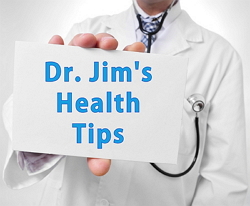
Why do we not understand the essentials of health? We neglect health because we too often take the most important things in our lives as knee-jerk responses; they just happen. Health is the water in our swimming pool; our lives are filled with important things. The solid material “pool” (our body) simply contains the essential thing. We ignore its importance because it is just there.
Health is the most cherished and least understood human condition; it is appreciated only when impaired, which is a very twisted notion; the faulty concept is definitely hazardous to well-being. There has been a lot of talk lately about the world situation, and the upshot is that one cannot deal satisfactorily with something they do not understand. People claim to understand important lifestyle subjects such as health until asked to define them; they invariably cast health as the opposite of disease. Health is that but much, much more.
The word health derives from Old English roots meaning wholeness or the state of being uninjured. Originally the word meant being healthy— having health was a good omen for all of one’s activities; close to hale, which has persisted unchanged as fit and strong. Health, however, currently has abridged to mean freedom from physical maladies. The good news is that there is much more to health.
The World Health Organization defines health as: ”a state of complete physical, mental and social well-being and not merely the absence of disease or infirmity.” Health worsens with illness yet is incompletely defined by the absence of disease. Instead, the Army’s slogan, “Be all you can be” notion applies to each individual’s state of health, and “in spirit” should define the concept of health. Social, mental, physical, and even spiritual states of health or wellness of functioning can be improved, and a healthy boldness promotes behaviors to improve functioning. The more you use it, the more you boost it.
Every adult will experience serious threats to their health, and those frightful experiences rapidly eclipse all other worldly concerns. Compared to serious illness, all other difficulties are secondary. We must recognize that health is very valuable. If you ask people a hypothetical question to determine their value of health, the answer is consistent and should not surprise them. “If you were diagnosed with a terminal illness and a possible cure was available, how much would you pay? Would you give up one of your two cars?” The answer is always that I would pay all I have and all I could borrow. Serious threats to our health are more valuable than material possessions, by far.

